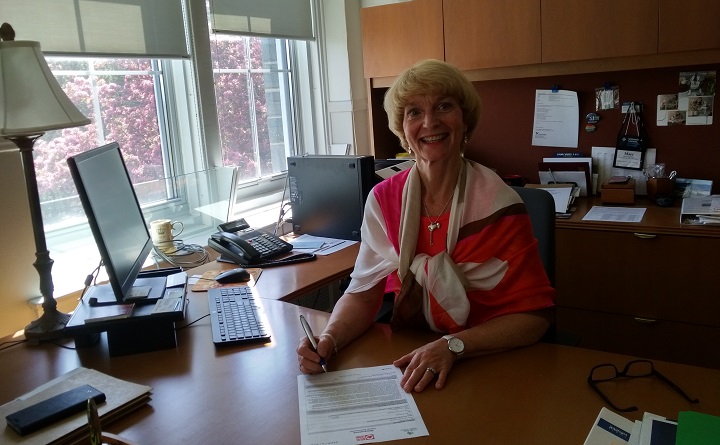
On behalf of Mount Saint Vincent University, Dr. Mary Bluechardt, President and Vice-Chancellor, recently signed the federal government’s new Dimensions Charter focused on increasing equity, diversity and inclusion in research. Signing the Charter indicates the Mount’s commitment to embedding eight EDI-focused principles in University policies, practices and action plans. [Read the principles here]
“Inspired by the United Kingdom’s internationally-recognized Athena SWAN program, Dimensions aims to address systemic barriers, particularly those experienced by members of underrepresented or disadvantaged groups, including, but not limited to, women, Indigenous Peoples, persons with disabilities, members of visible minority/racialized groups, and members of LGBTQ2+ communities.” (CIHR)
“Sound EDI-informed policies and practices improve access to the largest pool of qualified potential participants, enhance the integrity of a program’s application and selection processes, strengthen research outputs and increase the overall excellence of research.” (CIHR)
“The Mount was founded on a commitment to equality of opportunity, and the principles of equity, diversity and inclusion remain at the core of who we are today,” said Dr. Mary Bluechardt. “Together with colleagues across our University and across the national post-secondary landscape, I look forward to advancing efforts that support the participation of a truly diverse research community. This is a critical effort that stands to benefit all Canadians as beneficiaries of our researchers’ critical work.”
Earlier this year, the Mount was pleased to join with the Natural Sciences and Engineering Research Council of Canada (NSERC) to host a consultation session as part of the federal government’s cross-country consultation to inform the drafting of the Charter.
The charter is part of a larger Dimensions program that also includes new grants and a pilot phase to be launched in the next several months.
Noted The Honourable Kirsty Duncan, Minister of Science and Sport, “This truly is a critical and transformational step for Canadian post-secondary institutions. We know that when we bring together diverse points of view, our health, environment, communities and economy can thrive.”